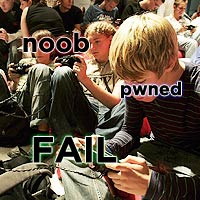VIA: Joe Dodson @ PluggedIn
Valentine’s Day is right around the corner, and we look forward to counting all the ways we love our favorite hobby. But, we confess, video gaming isn’t all headshots, high scores, and flawless victories. Sometimes the Princess is in another castle, and you feel like she can just stay there. So before we completely give ourselves over to praising the world’s fastest growing pastime, please join us in examining how video games have broken our hearts…and our controllers.
Cash Grabbing Sequels

You can’t blame publishers for wanting to produce endless sequels to wildly successful games, but you can blame them for acting on that desire. Sequel obsession dilutes great brands, and is one of the leading causes of JGS (Jaded Gamer Syndrome). Some publishers actually split the development of popular franchises so they can release cash-grabbing sequels every single year.
For instance, Ubisoft burnt out both Splinter Cell and Prince of Persia by releasing three games in each series back-to-back-to-back. They’re taking the same approach with Assassin’s Creed; a sequel to Assassin’s Creed 2 is due this year, and Assassin’s Creed 3 will likely arrive in 2011. On the flipside, Nintendo has been releasing Mario, Zelda, and Metroid games for the last twenty years, and all three of those brands are still super-strong. Why? Because Nintendo doesn’t make throwaway sequels.
Rude People

The advent of online gameplay opened the door to new worlds of competition, collaboration, and social interaction. That is to say, thanks to online games, we’ve found new ways to exclude each other from groups, publicly stroke our own egos, do unmentionable things to each others’ dead bodies, and inflict our crazy views on complete strangers, either in all caps, or at the tops of our voices. In short, we are all gremlins, and online video games fed us after midnight.
Fortunately, we are slowly discovering cures to the social anarchy contained in Pandora’s Xbox. Our online identities are assuming more permanent forms, and with the fall of utter anonymity, we’re becoming slightly more civilized. And besides, if someone is really mean to you in a video game, you can probably kill them with fire. Sometimes, the problems in video games go hand-in-hand with their rewards.
Text Heavy Tutorials

It’s Saturday night, you just bought a sweet new game, and you’re ready to settle in for some brainless hacking and slashing when, out of nowhere, your recent purchase hits you with a wall of text full of esoteric jargon, and nary a paragraph break. You blink twice, hit the “I get it button,” and hope you didn’t miss anything important. A half hour later, after stabbing yourself twice and leaping off a cliff backward, you return to the text heavy tutorial to read all about the game you should be playing. So much for stupid fun.
The greatest irony here is the video game medium possesses unparalleled power to show, and not just tell. So how about putting that to work?
Slow Patches for Big Problems

Nothing is worse than discovering a major, gamebreaking bug in a game you’ve been dying to play. Even if a fix comes fast, it really can’t come fast enough – not when you’ve already budgeted all your free time toward playing online with your friends, or when you’ve cancelled a trip with friends to stay home and play. That said, you reach all new levels of woe when an obvious and obnoxious issue remains unchecked for weeks, or even months. One notorious glitch in 2009 smash Modern Warfare 2 let unscrupulous players turn themselves into deadly walking bombs, lasted forever, and probably caused millions of different people to wonder out loud “Why has no-one fixed this?”
Token Stealth or Platforming Missions

We love stealth games like Splinter Cell and Metal Gear Solid, and platformers like Super Mario, but we hate it when a game of neither genre feels compelled to throw in a stealth or platforming mission just to mix things up. The thing that gets mixed up is usually the player, who either plummets to his death repeatedly, or is somehow noticed and arrested by the guards they used to manhandle.
Token stealth missions are the most serious offender, because stealth gameplay is incredibly difficult to pull off. At best, a token stealth mission is too easy. At worst; it’s the last thing you play before giving up on a game entirely. Token platforming missions, on the other hand, are generally funnier than they are bad. Imagine: you’re a powerful super-soldier bent on saving the world from an evil genius. Using nothing more than your bare hands, you’ve killed approximately a million bad people, two tanks and a helicopter — yet your mission comes to an unceremonious end when you fail to jump over a small hole.
Launch Day Downloadable Extras

We’re all in favor of developers creating and supplying downloadable content (DLC) for our favorite games. But when ‘extra’ content is released for free on the same day as the game itself, we have to cry foul. Why do we have to type in complicated codes and go through awkward registration processes when all this stuff could have just been put on the disc?
Yes, we know that by only providing DLC access codes with new copies of their games, publishers can turn around and charge for that same DLC when people buy the game used, getting a slice of a market that’s otherwise profitless for them. That doesn’t mean we have to like it.
We know you have Gaming Pet Peeves of your own, so make sure to vent in the comments.

















